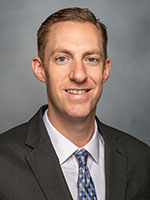Kaiser Permanente study highlights need to closely evaluate outcomes associated with new technologies
Enrolling recently hospitalized heart failure patients in a telemonitoring program did not reduce their chance of going back to the hospital or help them live longer, new Kaiser Permanente research shows.
The retrospective study published May 21 in the Journal of Cardiac Failure evaluated a pilot post-hospitalization daily telemonitoring program for heart failure patients that alerted doctors to sudden changes in a patient’s blood pressure, weight, or oxygen levels. The study compared 726 patients selected by their doctors to enroll in the program with 1,985 similar patients who did not have telemonitoring. The researchers used the patients’ electronic medical records to evaluate their outcomes at 60 and 90 days and 1 year after discharge.

Doctors expected the telemonitoring program would allow them to intervene more quickly if their patients developed new or worsening symptoms related to fluid retention. The study did find this to be the case: patients in the telemonitoring program were more likely to speak with a physician and to be prescribed diuretics — drugs used to help the kidneys flush out the excess fluid that can develop in people with heart failure. But telemonitoring was not linked to a lower risk of rehospitalization or dying from heart failure or other health problems after taking into account differences in the overall health of the patients in the study.
“Initially, only a few of our hospitals had given doctors the option to enroll their heart failure patients in this telemonitoring program,” said study co-author Amir Axelrod, MD, a cardiologist with The Permanente Medical Group (TPMG) and the clinical lead for heart failure for Kaiser Permanente Northern California. “Based on initial preliminary data, it appeared the program was a success. In fact, the data looked almost too good to be true. But we knew we had to evaluate the program scientifically before we expanded its use more broadly. And through this study we now know that telemonitoring was not associated with the better outcomes we initially thought it had.”
This study is a great example of how we evaluate evidence in real-time so that we know what really is working well and what isn’t.
— Andrew Ambrosy, MD
Heart failure is one of the leading causes of hospitalization in the U.S., and nearly 1 in 4 patients are readmitted to the hospital within 30 days of discharge nationally. People with the condition have a heart muscle that doesn’t pump blood properly. This can cause patients to have trouble breathing due to fluid buildup in the lungs. It can also cause swelling from fluid in the belly, legs, ankles, and feet. This can lead patients to gain 2 to 4 pounds within days; it can also cause a rapid increase in blood pressure.

Patients enrolled in the telemonitoring program were taught how to record and send daily readings from a scale, blood pressure cuff, and pulse oximeter through a computer tablet. The information was sent electronically to Kaiser Permanente, where it was uploaded to the patient’s medical record. If the patient’s weight or blood pressure had changed significantly, an electronic alert was sent to their primary care provider and cardiologist.
“This study is a great example of how our operational leaders and investigators based at the Division of Research partner to create a true learning hospital system that provides high-level care and rigorously evaluates evidence in real-time so that we know what really is working well and what isn’t,” said study co-author Andrew Ambrosy, MD, a research scientist at the Kaiser Permanente Northern California Division of Research and a TPMG cardiologist.
“The patients who received telemonitoring were very similar to those who did not, so we don’t believe it was that the patients who got the monitors were too sick to benefit,” Ambrosy added. “We remain optimistic and are currently evaluating novel approaches to telemonitoring including smart scales, phone-based apps, and non-invasive wearables that can provide information in different ways that might work better than the telemonitoring solution we studied.”

With the rapidly growing interest in integrating technology and artificial intelligence into medical care, the researchers say their findings serve as an important reminder of the need to confirm that new technologies that look beneficial actually are.
“There is a large push to introduce technology into staff workflows in health care throughout the country,” said senior author Alan S. Go, MD, a research scientist with the Division of Research. “But for the technology to improve care, we need to demonstrate that changing care with technology changes clinical and patient-centered outcomes — and that means we need prospective randomized controlled trials to evaluate them.”
Added Axelrod: “As we think about integrated care, and ways to provide better access to care and more timely care, we know this is the direction we want to move in. There remains a large unmet need to find a solution to help patients with heart failure.”
The study was funded by The Permanente Medical Group’s Delivery Science and Applied Research Program.
Co-authors include Rishi V. Parikh, MPH, Thida C. Tan, MPH, and Ankeet S. Bhatt, MD, MBA, of the Division of Research, and Jesse K. Fitzpatrick, MD, Keane K. Lee, MD, Sirtaz Aditya, MD, Jitesh V. Vasadia, MD, and Howard H. Dinh, MD, of The Permanente Medical Group.
# # #
About the Kaiser Permanente Division of Research
The Kaiser Permanente Division of Research conducts, publishes and disseminates epidemiologic and health services research to improve the health and medical care of Kaiser Permanente members and society at large. It seeks to understand the determinants of illness and well-being, and to improve the quality and cost-effectiveness of health care. Currently, DOR’s 600-plus staff is working on more than 450 epidemiological and health services research projects. For more information, visit divisionofresearch.kaiserpermanente.org or follow us @KPDOR.





This Post Has 0 Comments